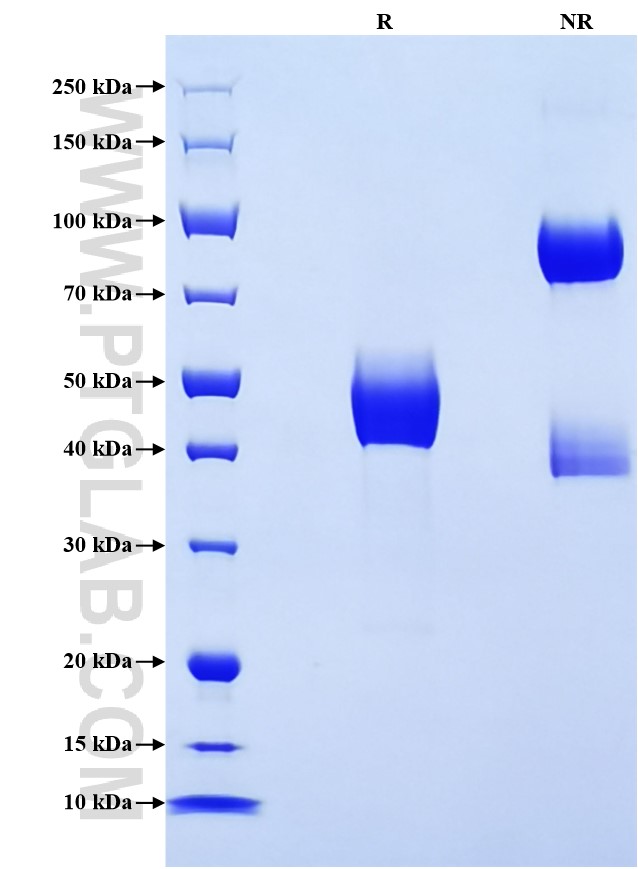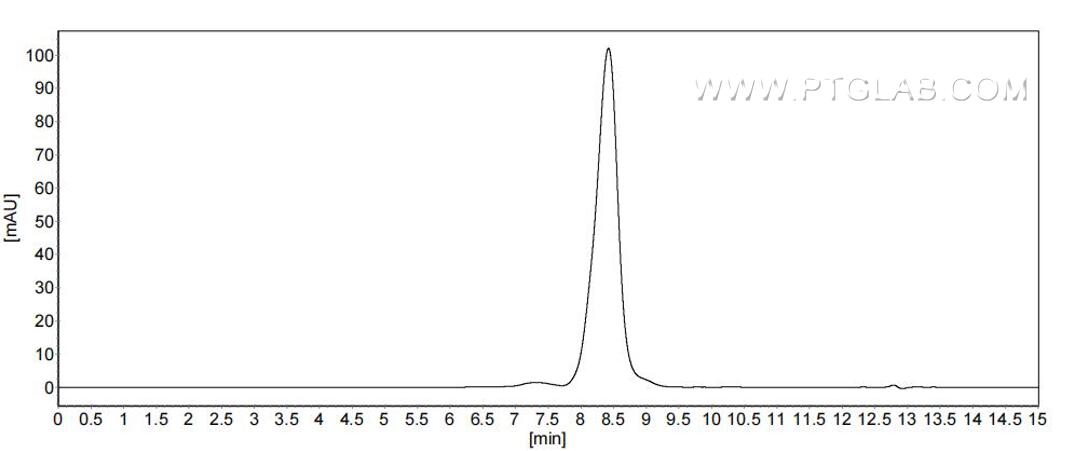Recombinant Human DR4 protein (rFc Tag) (HPLC verified)
种属
Human
纯度
>90 %, SDS-PAGE
>90 %, SEC-HPLC
标签
rFc Tag
生物活性
未测试
验证数据展示
产品信息
| 纯度 | >90 %, SDS-PAGE >90 %, SEC-HPLC |
| 内毒素 | <0.1 EU/μg protein, LAL method |
| 生物活性 |
Not tested |
| 来源 | HEK293-derived Human DR4 protein Ala109-Asn239 (Accession# O00220) with a rabbit IgG Fc tag at the C-terminus. |
| 基因ID | 8797 |
| 蛋白编号 | O00220 |
| 预测分子量 | 40.6 kDa |
| SDS-PAGE | 40-50 kDa, reducing (R) conditions |
| 组分 | Lyophilized from 0.22 μm filtered solution in PBS, pH 7.4. Normally 5% trehalose and 5% mannitol are added as protectants before lyophilization. |
| 复溶 | Briefly centrifuge the tube before opening. Reconstitute at 0.1-0.5 mg/mL in sterile water. |
| 储存条件 |
It is recommended that the protein be aliquoted for optimal storage. Avoid repeated freeze-thaw cycles.
|
| 运输条件 | The product is shipped at ambient temperature. Upon receipt, store it immediately at the recommended temperature. |
背景信息
DR4, also known as tumor necrosis factor (TNF)-related apoptosis-inducing ligand (TRAIL), is a member of the TNF superfamily. TRAIL activates apoptosis through the death receptors DR4 (also known as TRAILR1 and TNFRSF10A) and DR5 (also known as TRAILR2, KILLER and TNFRSF10B). DR4 and DR5 are single-pass type I membrane proteins that contain intracellular death domains (DD) and upon activation mediate apoptotic signals. Binding of TRAIL to DR4 or DR5 results in receptor oligomerization and recruitment of FAS-associated protein with death domain (FADD) and caspase 8 to form a functional death-inducing signalling complex (DISC). Upon DISC formation, caspase 8 is cleaved and activated, which initiates the subsequent cascade of caspases (aspartate-specific cysteine proteases) mediating apoptosis. DR4 or DR5 promotes the activation of NF-kappa-B and play an important role in inflammation.
参考文献:
1. Ozawa F. et al. (2001). Cancer Lett. 163(1):71-81. 2. Johnstone RW. et al. (2008). Nat Rev Cancer. 8(10):782-798. 3. Chaudhary PM. et al. (1997). Immunity. 7(6):821-830. 4. Tang W. et al. (2009). Cell Res. 19(6):758-767.

